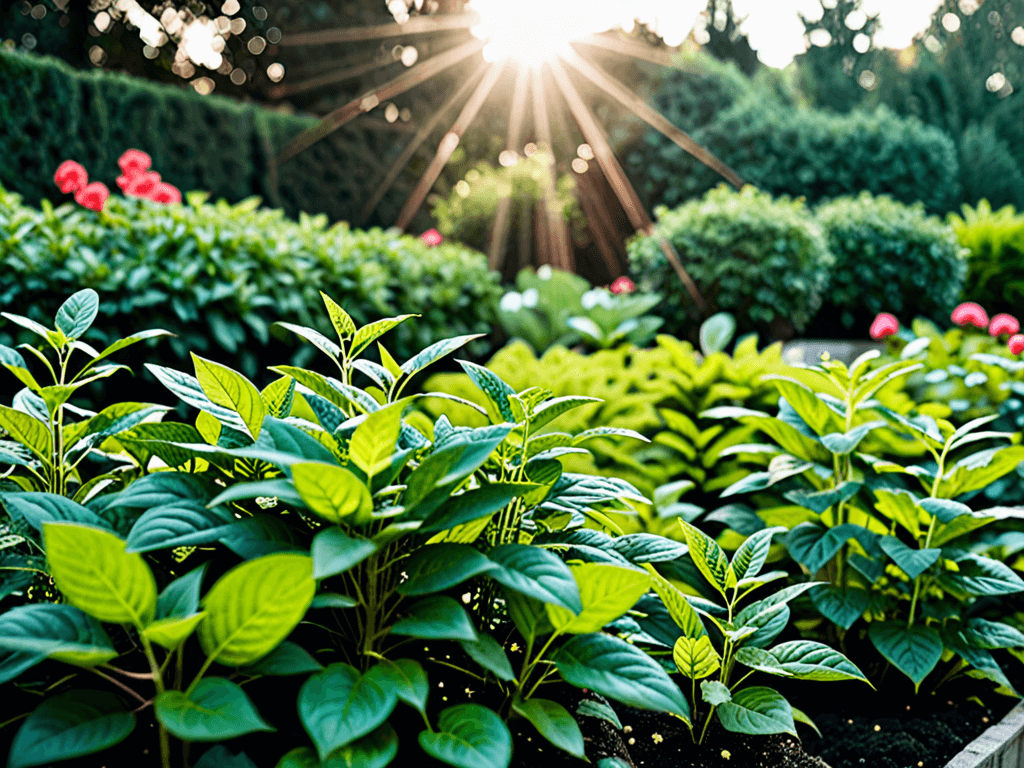Sustainable gardening is a holistic approach that emphasizes eco-friendly practices. By following these guidelines, gardeners can create a thriving, sustainable environment that supports both personal well-being and ecological preservation.
Understanding sustainable gardening principles
Embracing sustainable gardening principles involves understanding ecosystem interactions and minimizing harm to the environment. This approach encourages eco-friendly practices, such as reducing waste, conserving water, and maintaining biodiversity.
By choosing native plants, you promote healthier ecosystems, as these plants require less water and are more resilient to local pests and diseases.
Furthermore, opting for organic fertilizers and natural pest management reduces chemical use, benefiting soil health and local wildlife.
Implementing composting techniques not only enriches the soil but also reduces household waste.
By adopting these principles, you contribute to a balanced and sustainable garden environment that supports long-term health and productivity.
The importance of choosing native plants
Opting for native plants in your garden offers multiple benefits for both you and the environment.
Native plants are adapted to local climate conditions, which means they typically require less water and fewer chemical fertilizers.
This helps in conserving water and reducing chemical runoff.
Additionally, they provide essential habitats and food sources for local wildlife, including pollinators like bees and butterflies.
By supporting local ecosystems, native plants enhance biodiversity and promote a healthier environment.
They are also more resistant to local pests and diseases, which decreases the need for pesticides.
Incorporating native plants into your garden strategy supports sustainable gardening and enriches your outdoor space with natural beauty and resilience.
Water conservation techniques
Effective water conservation techniques are vital for sustainable gardening. Using rain barrels to collect rainwater is an excellent way to water plants while reducing dependency on municipal water.
Implementing a drip irrigation system also helps by delivering water directly to plant roots, thus minimizing evaporation and runoff.
Mulching garden beds can conserve moisture, suppress weeds, and improve soil quality.
Choose drought-tolerant plants that require less water.
Additionally, watering in the early morning or late evening decreases water loss due to evaporation.
Adopting these strategies not only saves water but also promotes healthier plants and gardens.
Maintaining soil health through composting
Maintaining soil health through composting is a fundamental practice in sustainable gardening.
Composting reduces food waste by recycling organic materials into nutrient-rich soil amendments.
These amendments enhance soil structure, improve moisture retention, and provide essential nutrients for plants.
To start, gather kitchen scraps like fruit peels, vegetable scraps, and coffee grounds, mixing them with yard waste such as leaves and grass clippings.
Turning the pile regularly aerates it, speeding up decomposition.
Using compost in your garden not only boosts plant health but also reduces reliance on chemical fertilizers, protecting the surrounding environment.
Managing pests naturally
Managing pests naturally involves using techniques that protect your plants while keeping the environment safe.
Companion planting is a smart strategy, as certain plants can repel pests when grown together.
For instance, planting marigolds can deter nematodes and aphids.
Introducing beneficial insects, like ladybugs and lacewings, can help control pest populations naturally.
Neem oil is another effective solution for treating common garden pests without harming beneficial insects.
Creating physical barriers, such as row covers, can also prevent pests from accessing your plants.
Emphasizing natural pest control methods reduces the need for chemical pesticides and promotes a healthier garden ecosystem.
Utilizing organic fertilizers
Utilizing organic fertilizers plays a crucial role in nurturing plant health and sustaining the environment. These fertilizers, composed of natural materials like compost, manure, and bone meal, release nutrients slowly, ensuring plants receive them over a longer period.
This gradual release not only prevents nutrient leaching but also enhances soil structure and fertility. Organic fertilizers promote the growth of beneficial soil microorganisms, which aid in breaking down organic matter, thereby improving nutrient availability.
When applied, organic options reduce the risk of chemical runoff that could harm aquatic ecosystems. Additionally, they help in building long-term soil health, making them a sustainable choice for gardeners aiming to maintain a vibrant and productive garden.
Opting for energy-efficient gardening tools
Opting for energy-efficient gardening tools helps reduce your carbon footprint and lower energy bills.
Tools such as solar-powered lights and battery-operated lawnmowers are excellent choices.
These tools consume less electricity and operate quietly, minimizing noise pollution.
Using hand tools over power tools further conserves energy and offers greater precision for delicate tasks.
High-efficiency technologies, like LED grow lights, also provide substantial energy savings without compromising plant health.
Making informed choices about tool efficiency not only benefits the environment but also supports sustainable gardening practices.
Fostering community gardens
Fostering community gardens brings people together to create shared green spaces, enhancing both social bonds and environmental health. These gardens offer valuable opportunities for residents to collaborate, learn, and engage in sustainable gardening practices. Community gardens can help reduce food deserts by providing fresh produce and promoting healthier lifestyles. Additionally, they transform underutilized urban areas into vibrant ecological hubs. Educational programs and workshops held in these gardens teach important skills such as composting, planting, and eco-friendly pest management. By supporting community gardens, you contribute to creating greener, more resilient urban spaces that connect people and nature.
Embracing Sustainable Gardening Practices
Adopting sustainable gardening tips can transform your garden into a thriving, eco-friendly space.
These practices, such as water conservation, using native plants, and fostering community gardens, contribute to the environment’s health and personal well-being.
By choosing organic fertilizers and energy-efficient tools, gardeners reduce environmental impact and support biodiversity.
Moreover, managing pests naturally and boosting soil health through composting creates a robust and balanced garden ecosystem.
Ultimately, embracing these sustainable methods not only advances ecological stewardship but also fosters community connections and educates gardeners on the significance of going green.
Frequently Asked Questions about Sustainable Gardening
What are the benefits of using native plants in my garden?
Native plants are adapted to the local climate, require less water, and support local wildlife.
How can I conserve water in my garden?
Collect rainwater and use drip irrigation systems to minimize water usage and evaporation.
What are natural ways to manage garden pests?
Companion planting, introducing beneficial insects, and using neem oil can help manage pests without chemicals.
Why should I choose organic fertilizers?
Organic fertilizers improve soil health by promoting beneficial microorganisms and reducing chemical usage.
How do community gardens benefit neighborhoods?
They foster community bonds, provide fresh produce, and transform urban areas into green spaces.
What tools can make gardening more energy-efficient?
Solar-powered and battery-operated tools, along with hand tools, save energy and reduce emissions.


